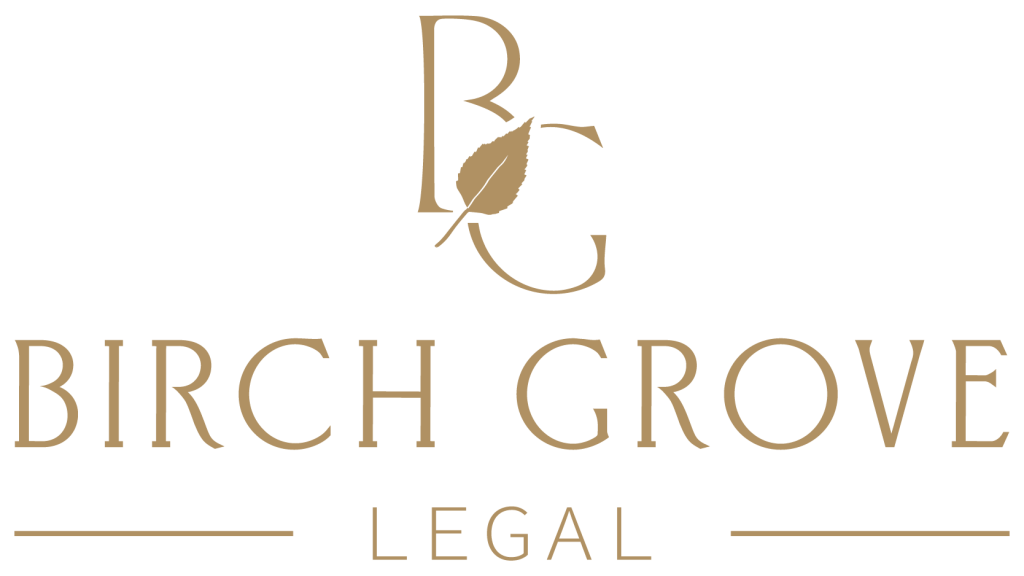Planning for what happens after death isn’t easy, but ignoring the legal steps can create even more confusion for loved ones. Many Colorado residents are left asking urgent Colorado estate law questions when someone passes away or when starting to plan their own estate.
As experienced estate planning attorneys serving Colorado residents for years, we’ve helped hundreds of families through probate, trust setup, and court filings. In this guide, we’ll answer your legal questions directly and walk you through what to expect, step by step.
If you’re managing a loved one’s estate or trying to prepare your own plan, you’ll get the clarity you need right here.
Understanding Colorado Estate Law Questions

Let’s begin by explaining what estate law really means.
Estate law outlines how a person’s property and debts are managed after death. These laws determine who receives which assets, how disputes are resolved, and how taxes or fees are addressed. The process is commonly referred to as probate, though it may also involve trusts, court orders, or other legal mechanisms.
As noted by the Federal Trade Commission, debts typically remain the responsibility of the estate, not surviving family members, unless specific legal exceptions apply. The primary goal of estate law is to ensure that all assets, including real estate, personal property, and financial accounts, are distributed fairly, with or without a will.
What Is Probate in Colorado?

When someone passes away, their estate often goes through a legal process called probate. This process is supervised by the Colorado courts to ensure that debts are paid and the remaining assets are passed on to rightful heirs or beneficiaries.
There are three types of probate in Colorado:
Formal Probate
Formal probate is required when there are legal concerns such as disputes over the will, contested heirs, or significant creditor claims. It involves greater court oversight and may include hearings or judicial review. This process is also used if no will exists or relationships between beneficiaries are likely to trigger conflict.
Informal Probate
Informal probate is common for simple estates with a valid will, no disputes, and an available personal representative. It is less expensive and faster than formal probate, requiring minimal court supervision. Most Colorado estates qualify for this route if proper documentation is in place and heirs agree on how to proceed.
Small Estate Process
Colorado allows a simplified process for small estates valued under $50,000 with no real estate involved. Heirs can use an affidavit to claim assets without going through full probate. This option helps families avoid delays and legal fees when the estate qualifies under the statutory limits defined by state law.
When Is Formal Probate Required?

In Colorado, formal probate becomes necessary when:
- The will is disputed or unclear
- An heir is missing or unknown
- Multiple creditors are involved
- There’s real property that needs a title transfer
- Family relationships are strained, increasing the chance of litigation
Formal probate provides extra court supervision and legal protections, but it also takes more time. Still, it may be the safest option when the probate estate is complicated.
Avoiding Probate: Is It Possible?

People often ask how to skip probate altogether. While avoiding probate isn’t always possible, it can be minimized with good planning.
Some options include:
- Setting up a revocable or irrevocable trust
- Using payable-on-death (POD) accounts
- Naming beneficiaries on life insurance or retirement accounts
- Joint ownership with rights of survivorship
These strategies help transfer assets outside of probate, saving time and legal fees, but they must be set up before death occurs.
The Role of the Personal Representative

Every Colorado estate that goes through probate must appoint a personal representative (also known as an executor). This person has legal authority to act on behalf of the decedent estate.
Responsibilities of the Personal Representative:
- Inventory all assets and file necessary forms
- Notify creditors and pay valid debts
- Handle estate taxes and expenses
- Distribute property according to the will or law
- Work with Colorado probate courts to file reports and close the estate
It’s a big responsibility. While you’re not legally required to hire a lawyer, it’s highly recommended, especially if the estate is complex or includes real estate.
Estate and Probate Questions: Real Situations

Let’s walk through some common estate and probate questions Colorado families face:
1. What If Someone Dies Without a Will?
When a person dies without a valid will, it’s called intestacy. Colorado’s intestate succession laws decide how assets are distributed:
- Spouse receives everything if no children
- Children share equally if no spouse
- If both exist, the estate is split based on detailed rules in the Colorado Probate Code
In these cases, the court may also appoint a personal representative if no one is named.
2. Does the Surviving Spouse Automatically Inherit Everything?
Not always. In Colorado, a surviving spouse has priority rights, but if the decedent had children from another relationship, the estate may be divided. Without joint ownership or a trust, assets usually must go through probate before legal title transfers, even if the spouse was the primary caretaker or dependent.
3. What About Personal Property Like Jewelry or Cars?
Personal property such as cars, jewelry, or collectibles doesn’t automatically pass to heirs. Unless listed in a valid will or included in a trust, these items must go through probate. Even lower-value assets need proper legal transfer to avoid disputes or complications in estate settlement procedures.
Taxes, Trusts, and Colorado Estate Planning

One of the most confusing parts of estate law involves taxes and trusts. Let’s clear that up.
Are There Estate Taxes in Colorado?
According to the Tax Foundation, Colorado does not impose an estate tax or inheritance tax as of 2025. However, large estates may be subject to federal estate taxes if their value exceeds $13.61 million (per individual).
What Is the Role of Trusts?
Trusts are powerful tools to control how your assets are distributed. Two common types are:
- Revocable trust: Can be changed during your lifetime and avoids probate
- Irrevocable trust: Cannot be changed but offers protection from creditors or estate taxes
Using a trust can reduce legal delays, maintain privacy, and give more control over your estate, especially if you have specific wishes.
How to Build a Complete Estate Plan in Colorado

A good estate plan is more than just a will. It should also include:
- Durable power of attorney (for finances)
- Medical power of attorney (for healthcare decisions)
- Advance directive or living will
- Instructions for remains
- Guardianship appointment for minor children
These documents help avoid court battles, medical confusion, and disputes during emergencies.
Also, remember to check your beneficiary designations on financial accounts. These override what’s written in your will and could cause accidental disinheritance if outdated.
Estate and Probate Questions

Let’s return to another set of frequently asked estate and probate questions.
1. How Long Do You Have to File Probate in Colorado?
Generally, probate must begin within three years of the person’s death. After that, it becomes harder to establish the validity of the will or appoint a representative.
Some exceptions apply, such as if the person was missing and later declared dead. But in most cases, don’t delay especially if real property needs to be transferred.
2. What Counts as a “Small Estate”?
Colorado defines a small estate as one worth less than $50,000, excluding real estate. These cases can be handled with an affidavit and don’t require a full court probate, saving families time and money.
What to Ask an Estate Planning Lawyer

If you’re ready to create or revise your estate plan, choosing the right attorney matters. Ask these questions:
- Do you specialize in Colorado estate and probate law?
- Can you help with both wills and trusts?
- Will you assist my family during probate, if needed?
- What’s your process for reviewing real estate, tax concerns, and digital assets?
A good estate planning lawyer won’t just fill out forms, they’ll guide you through the entire process and help you avoid long-term risks.
Final Thoughts
Colorado estate law can be complex, but once you understand how probate works, what documents are required, and how assets are handled, the path forward becomes clearer. From court filings to estate taxes, having the right information helps you avoid delays, reduce stress, and protect your family’s future.
Each family has unique priorities. Your estate plan should match your wishes, protect your loved ones, and follow Colorado’s legal standards every step of the way.
Ready to get organized with confidence? Book a strategy call to speak with an estate attorney who can help you start or update your plan today.
Frequently Asked Questions
Do all estates go through probate in Colorado?
No, not every estate requires probate. If assets are held in a trust, have named beneficiaries, or are jointly owned, they may bypass probate. However, estates with real property or no planning documents typically need probate to transfer ownership and settle debts through Colorado’s legal process.
How long does probate take in Colorado?
Most probate cases in Colorado take between six months to a year. The timeline depends on the estate’s complexity, creditor claims, and court schedules. Contested wills or unclear asset documentation can extend the process significantly. Simple, uncontested estates using informal probate often move faster.
What happens if someone dies without a will in Colorado?
If a person dies without a will, Colorado’s intestacy laws determine who inherits the estate. Typically, the surviving spouse and children share the estate based on statutory rules. A personal representative is appointed by the court, and all assets go through probate for legal distribution.
Can a will be contested in Colorado?
Yes, wills can be contested in Colorado under specific grounds like fraud, undue influence, or lack of capacity. A formal probate proceeding is required to resolve disputes. Heirs or interested parties must act quickly and present evidence to challenge the will within the legal timeframe.
Is a handwritten will valid in Colorado?
Yes, Colorado recognizes holographic (handwritten) wills if they are signed and the material portions are in the testator’s handwriting. However, unclear language or missing elements can lead to court challenges. To ensure validity, it’s best to consult an estate planning attorney before relying on a handwritten document.





0 Comments